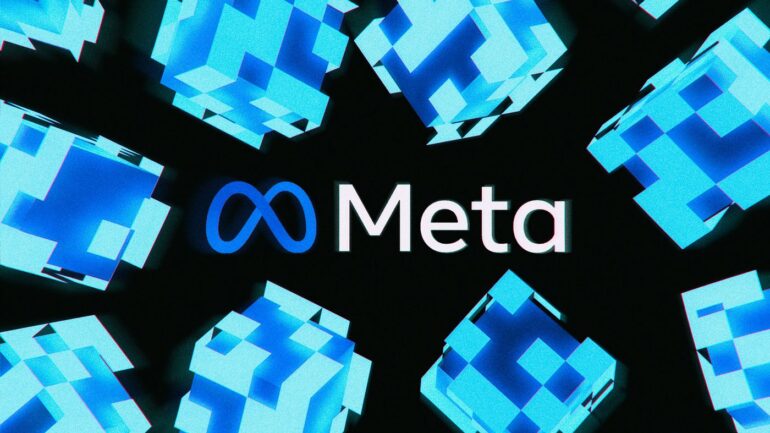TL;DR:
- Meta has developed an Open-Source Speech AI called MMS.
- MMS can recognize over 4,000 spoken languages and generate speech in over 1,100 languages.
- Meta is open-sourcing MMS to preserve language diversity and encourage further research.
- Unconventional data collection methods using religious texts contributed to the training of the MMS model.
- Meta’s approach avoids bias and maintains gender neutrality in the generated speech.
- The MMS model outperformed OpenAI’s Whisper, achieving a 50% reduction in word error rate and covering 11 times more languages.
- Meta acknowledges that the models are not perfect and emphasizes collaboration for responsible AI development.
- By open-sourcing MMS, Meta aims to counteract language decline and promote the use of native languages through technology.
Main AI News:
Meta, in a departure from the ChatGPT clones dominating the AI language model landscape, has unveiled its groundbreaking Massively Multilingual Speech (MMS) project. This pioneering endeavor boasts the ability to recognize over 4,000 spoken languages and facilitate text-to-speech conversion in more than 1,100 languages. In a commitment to preserving language diversity and fostering research innovation, Meta has chosen to open-source MMS, making the models and code accessible to the wider research community. By sharing their work, Meta aims to contribute to the preservation of the world’s remarkable linguistic tapestry.
Traditional speech recognition and text-to-speech models rely on extensive training using labeled audio data encompassing thousands of hours. However, for lesser-known languages prevalent in non-industrialized nations and at risk of vanishing, such training data is scarce, if not non-existent. Acknowledging this challenge, Meta adopted an unconventional approach by harnessing audio recordings of translated religious texts. By leveraging publicly available recordings of diverse languages present in religious texts such as the Bible, Meta expanded the model’s language repertoire to encompass over 4,000 languages.
While the choice of religious texts as a data source might initially raise concerns about potential biases, Meta assures that the content of the audio recordings does not influence the model to generate religious language disproportionately. The utilization of a connectionist temporal classification (CTC) approach, which is more restricted compared to larger language models, ensures a balanced output. Moreover, despite the majority of the religious recordings featuring male speakers, the model maintains gender neutrality, performing equally well with both male and female voices.
Meta further enhanced the data usability by training an alignment model and employed wav2vec 2.0, their self-supervised speech representation learning model, capable of training on unlabeled data. This innovative combination of unconventional data sources and self-supervised speech models yielded remarkable outcomes. Comparative analysis against OpenAI’s Whisper demonstrated that Meta’s Massively Multilingual Speech models achieved a 50% reduction in word error rate while encompassing a staggering 11 times more languages.
Meta acknowledges that its new models are not flawless, highlighting the potential risk of mistranscribing select words or phrases, leading to offensive or inaccurate language output. The company underscores the importance of collaboration across the AI community to ensure the responsible development and refinement of AI technologies.
By releasing MMS for open-source research, Meta aims to reverse the trend of technology, narrowing language support to a mere 100 or fewer languages favored by prominent tech companies. Instead, Meta envisions a world where assistive technology, text-to-speech capabilities, and immersive technologies such as virtual and augmented reality empower individuals to communicate and learn in their native languages. This vision fosters linguistic preservation, enabling access to information and technological advancements while embracing the rich tapestry of global languages.
Conlcusion:
Meta’s development of the Open-Source Speech AI, MMS, with its impressive capabilities in recognizing over 4,000 spoken languages, signifies a significant advancement in the market for language-related AI technologies. By open-sourcing MMS, Meta not only demonstrates its commitment to preserving language diversity but also fuels innovation and collaboration within the research community. This breakthrough has the potential to revolutionize language recognition, text-to-speech conversion, and assistive technologies across industries.
As businesses increasingly focus on global reach and inclusivity, the availability of robust language recognition models like MMS opens up new avenues for personalized customer experiences, multilingual communication, and improved accessibility. Moreover, Meta’s efforts to address biases and maintain gender neutrality in speech generation showcase a commitment to ethical AI development. As the market continues to evolve, the integration of advanced speech AI technologies like MMS will drive enhanced language support, cultural preservation, and a more inclusive digital landscape.

